Antaran Bread
The Most Important Part of Every Meal
With a new delight every month, you have not experienced Antaran cuisine until you have stayed a year.
Eat the same bread all year? Might as well hand the country over to Florarova.
In Antarand, nearly every meal is served with bread. What type of bread that is depends primarily on the time of year. Known as the Antaran Bread Cycle, Antaran restaurants typically highlight a different type of bread every month, following a common calendar. While family meals may vary the bread a little more, many Antarans follow the same calendar regarding what they bake and serve at home. Each bread has a different cultural significance within the country and reason why it became popular. Though there are myths explaining the cycle's origins, no one really knows how it came to be.
The Antaran Bread Cycle
Elden--Gingerbread
The tea served to those undergoing the Yub coming of age ceremony is a secret known only to the priestesses. But rumor has it that one of the ingredients is ginger, so many who undergo it like to start their year off by eating lots of ginger to prepare their bodies for the ordeal. Antarand gingerbread is particularly unique as it tends to be savory rather than sweet.
Hany--Date Bread
According to local Mun legend, summer is the time when one is most likely to encounter the spirits of the dead who were not let into either afterlife and have been forced to walk the Earth. Anthopologists argue whether this myth is due to increased deaths from the heat or an adoption of Florarovan myth. Either way, these potential troublemakers aren't very fond of dates, making date bread a popular height of summer snack.
Pegemd--Cornbread
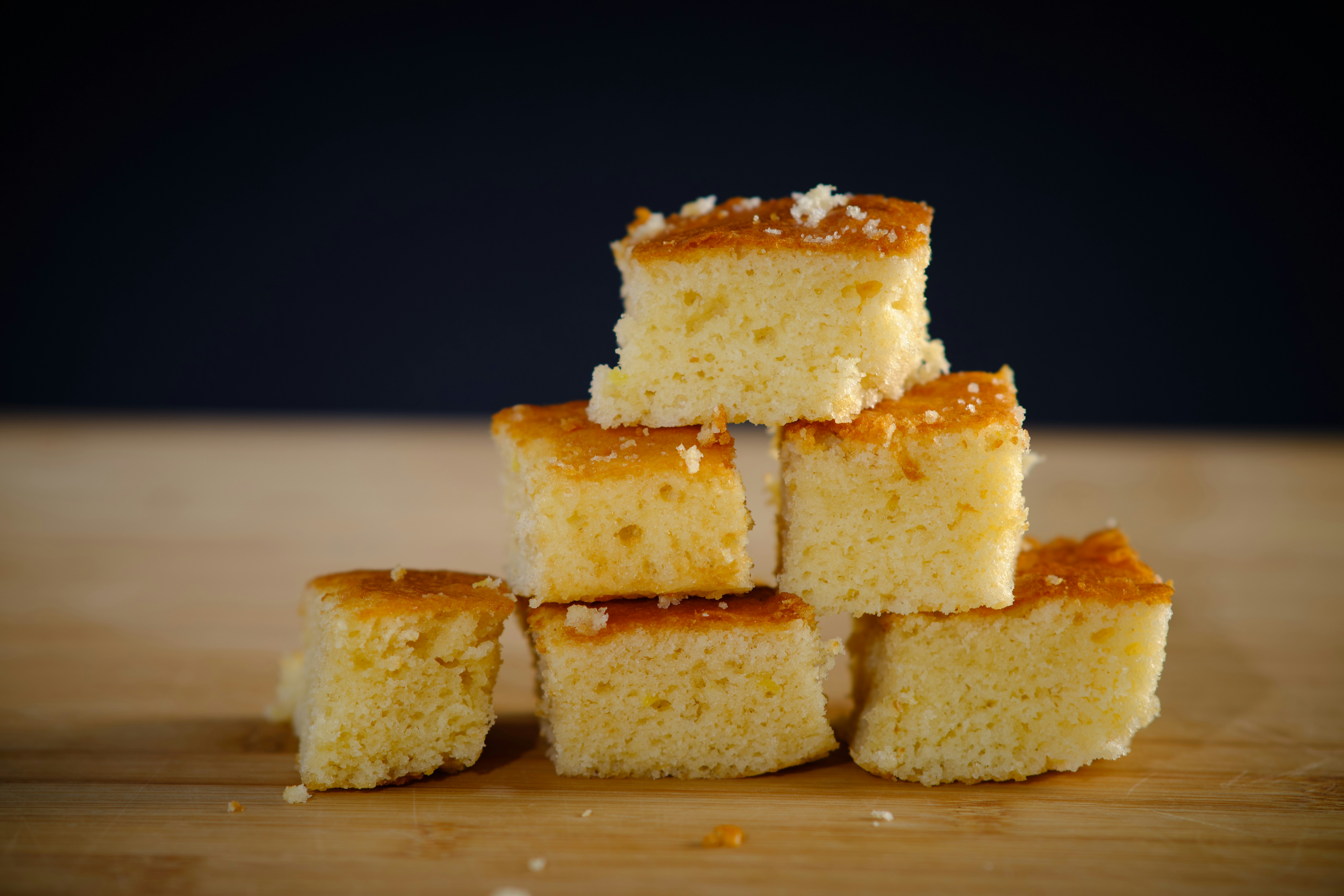 by Jose Luis
Antaran tradition claims that many years ago, during a wheat shortage, people cooked cornbread, and the tradition has stuck around.
by Jose Luis
Antaran tradition claims that many years ago, during a wheat shortage, people cooked cornbread, and the tradition has stuck around.
Bent--Bone Bread
Far less ominous than it sounds, bone bread is a Xurugwi name for plain, white bread, due to both its color and that it is commonly enjoyed with Eki Berry jam. Because eki berries turn teal when they are cooked, the bread and jam together resemble Xurugwi Death Beads. Sometimes Xurguwi children even draw death bead symbols on their bread with the jam, which is usually viewed by adults as a way for children to practice and learn about their traditions.
Ihkthion--Shortbread
The details vary depending on which part of the country you're in, but the story always says that some kitchen wizard created a cracker that could grant immortality. But she coded the recipe and hid it in pieces. There are always those who claim to have found it, though no one seems to have reaped its benefits. Nevertheless, eating shortbread, especially during Hany, is thought to bring luck and prosperity.
Saulen--Founders Knots
In Antarand, the winter solstice marks The Day of Refuge, the celebration of the Founding Five cultures uniting together to create the nation. Founders knots are symbolic of this, not only because the knots themselves are seen as a representation of the Founding Five uniting, but because the dough is typically seasoned with five herbs and spices. Most often, they are savory, with ingredients such as garlic and oregano, but there are also sweet options with ingredients such as cinnamon and nutmeg.
Skel--Flatbread
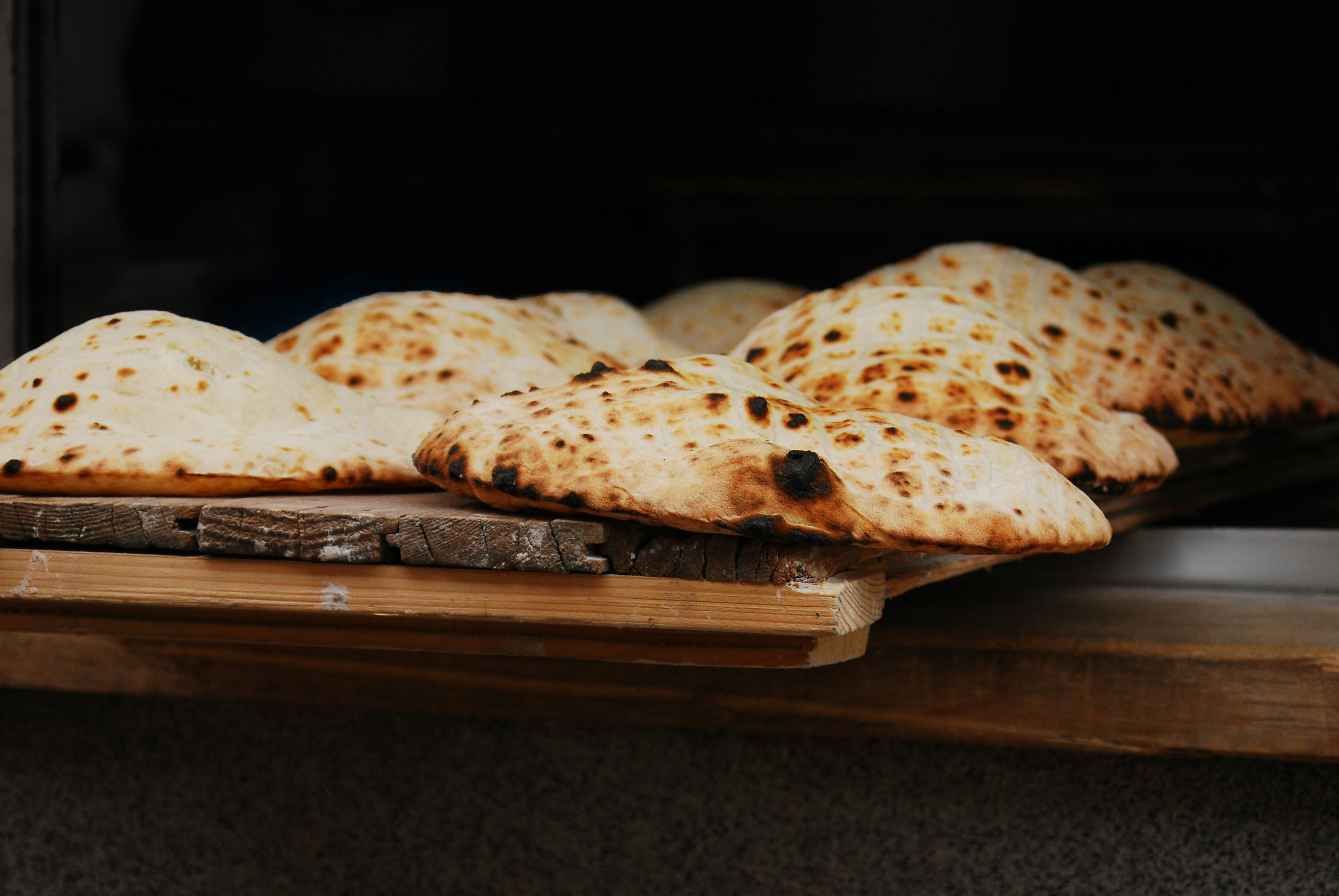 by Nancy Hann
Commonly eaten in Feren, the Pelan brought this bread with them when they came to the Southern Islands.
by Nancy Hann
Commonly eaten in Feren, the Pelan brought this bread with them when they came to the Southern Islands.
Kyumga--Onion Shortcake
The 30th of Kyumga is a holiday in Zenxon, and historically a night of violence for Sprites, who were often attacked by human revelers. Thus for sprites, it became a night to stay home and practice new skills. They even developed competitions among themselves, like the one that supposedly led to the creation of onion shortcake, which became a sensation when the sprites brought it to Antarand.
Fya--Spring Bread
Antarans celebrate the spring equinox with this bread filled with a variety of fruits and nuts. It's thought that this recipe also comes from sprite tradition, since it is additionally connected with the growth of trees.
Athion--Rye Bread
Rye is considered a favorite of the legendary Miza, so rye bread is particularly popular during the month of Fya, to entice it out of hibernation.
Verillion--Whole Wheat Bread
Whole wheat bread is usually cooked as rolls and considered traditional to leave for Messengers on Messengers Eve. It is also tradition for children to save one after the holiday and use as a ball after it has gone stale. Children play a variety of games with these rolls, with the owner of the last roll to be destroyed during play being declared the winner.
Bonus! Rainbow BreadRainbow Bread is not a specific veriety of bread, but is made by coloring strands of dough and weaving them together before baking. It it popular during the Day of Refuge and other holidays.
Elden--Gingerbread The tea served to those undergoing the Yub coming of age ceremony is a secret known only to the priestesses. But rumor has it that one of the ingredients is ginger, so many who undergo it like to start their year off by eating lots of ginger to prepare their bodies for the ordeal. Antarand gingerbread is particularly unique as it tends to be savory rather than sweet.
Hany--Date Bread According to local Mun legend, summer is the time when one is most likely to encounter the spirits of the dead who were not let into either afterlife and have been forced to walk the Earth. Anthopologists argue whether this myth is due to increased deaths from the heat or an adoption of Florarovan myth. Either way, these potential troublemakers aren't very fond of dates, making date bread a popular height of summer snack.
Pegemd--Cornbread
 by Jose Luis
Antaran tradition claims that many years ago, during a wheat shortage, people cooked cornbread, and the tradition has stuck around.
by Jose Luis
Antaran tradition claims that many years ago, during a wheat shortage, people cooked cornbread, and the tradition has stuck around.

by Jose Luis
Bent--Bone Bread Far less ominous than it sounds, bone bread is a Xurugwi name for plain, white bread, due to both its color and that it is commonly enjoyed with Eki Berry jam. Because eki berries turn teal when they are cooked, the bread and jam together resemble Xurugwi Death Beads. Sometimes Xurguwi children even draw death bead symbols on their bread with the jam, which is usually viewed by adults as a way for children to practice and learn about their traditions.
Ihkthion--Shortbread The details vary depending on which part of the country you're in, but the story always says that some kitchen wizard created a cracker that could grant immortality. But she coded the recipe and hid it in pieces. There are always those who claim to have found it, though no one seems to have reaped its benefits. Nevertheless, eating shortbread, especially during Hany, is thought to bring luck and prosperity.
Saulen--Founders Knots In Antarand, the winter solstice marks The Day of Refuge, the celebration of the Founding Five cultures uniting together to create the nation. Founders knots are symbolic of this, not only because the knots themselves are seen as a representation of the Founding Five uniting, but because the dough is typically seasoned with five herbs and spices. Most often, they are savory, with ingredients such as garlic and oregano, but there are also sweet options with ingredients such as cinnamon and nutmeg.
Skel--Flatbread
 by Nancy Hann
Commonly eaten in Feren, the Pelan brought this bread with them when they came to the Southern Islands.
by Nancy Hann
Commonly eaten in Feren, the Pelan brought this bread with them when they came to the Southern Islands.

by Nancy Hann


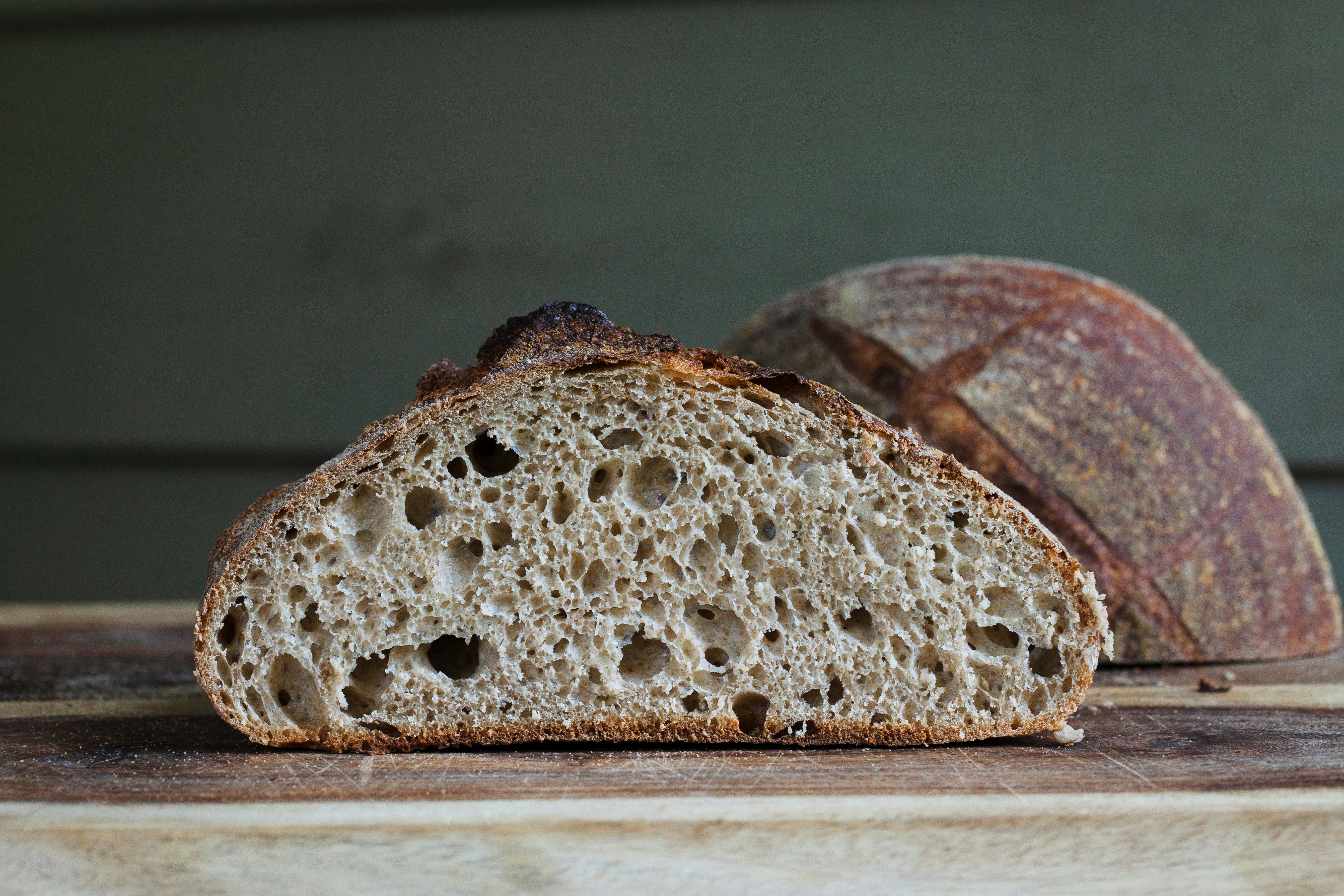
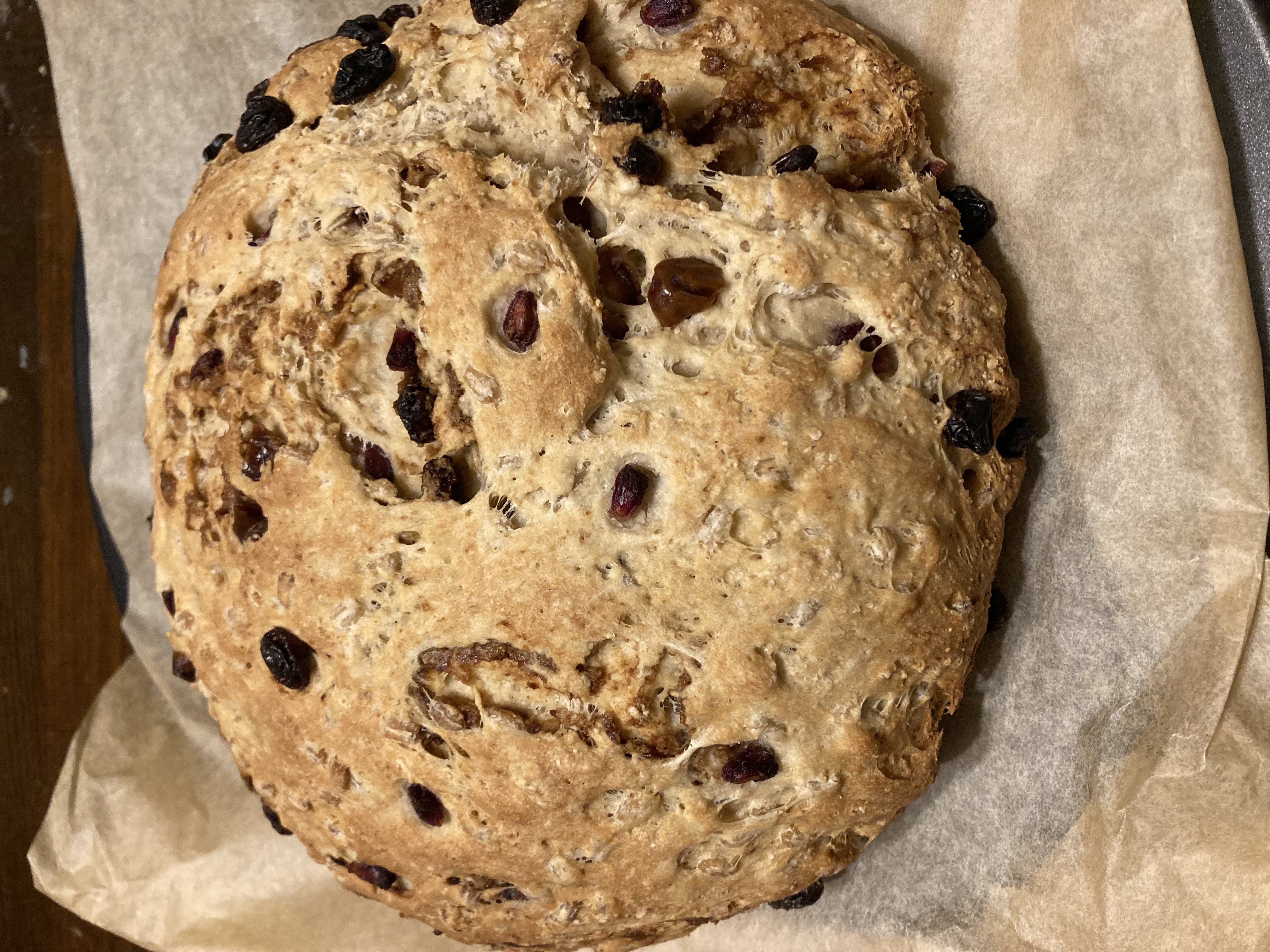
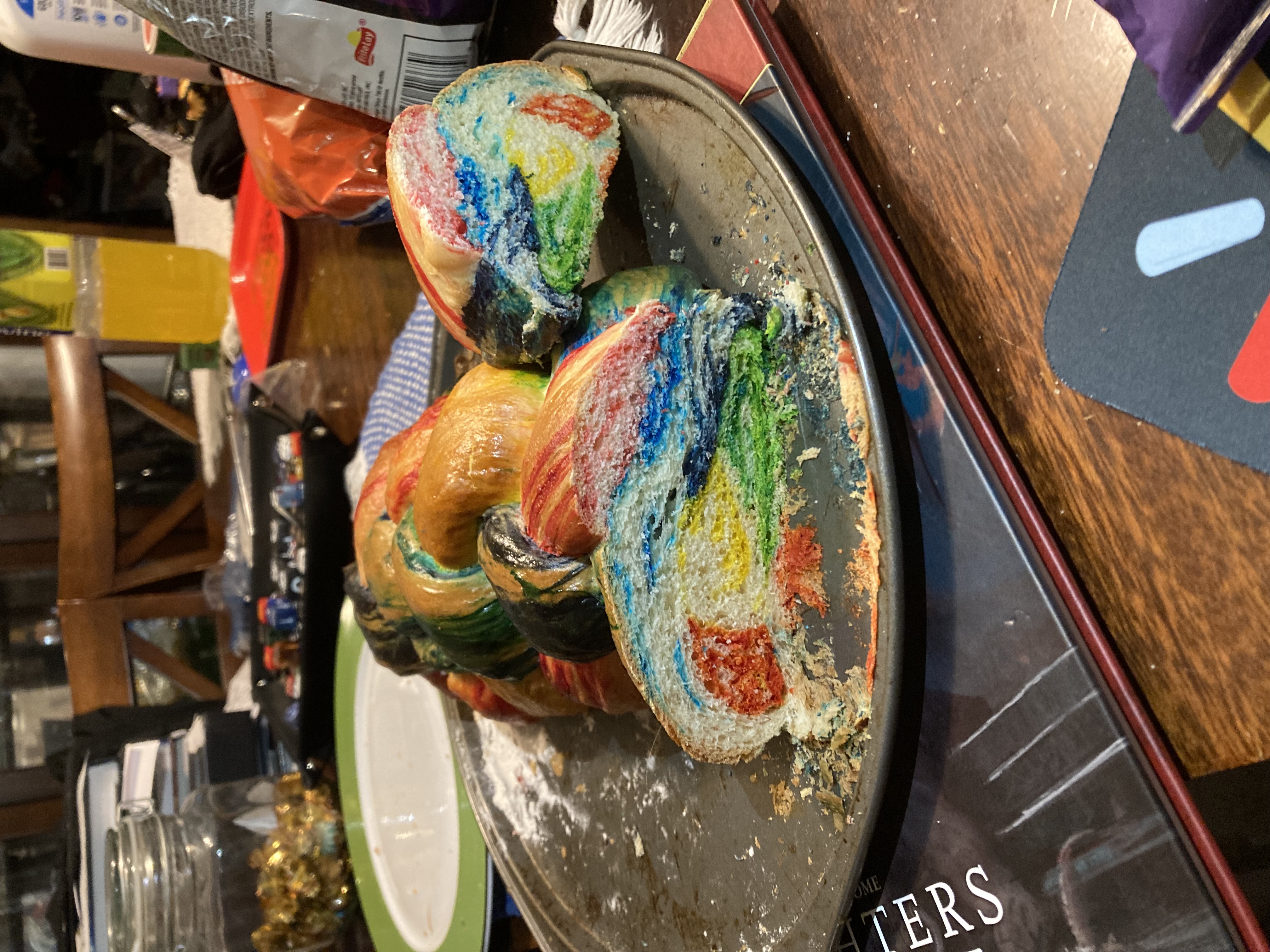
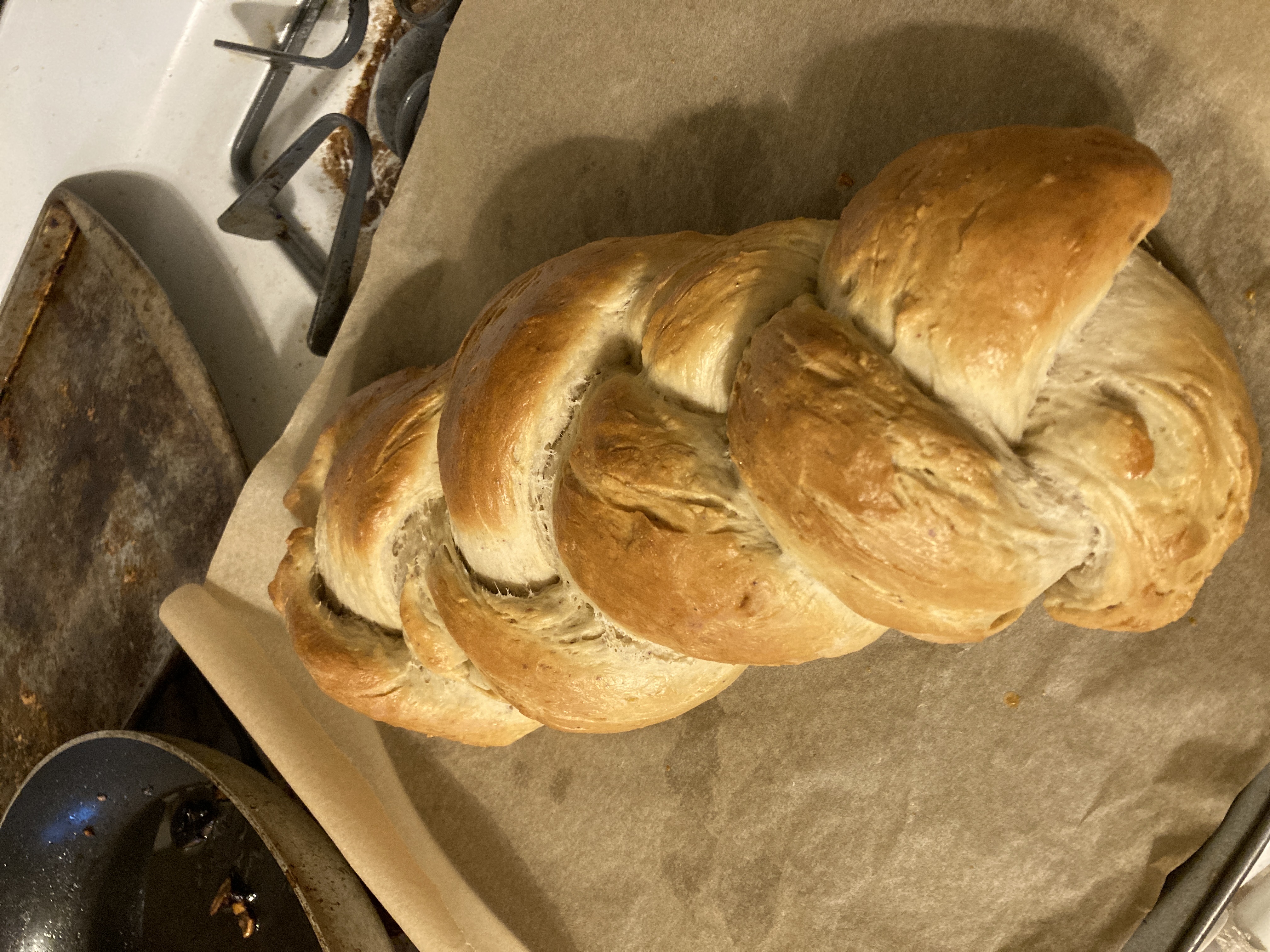

Comments